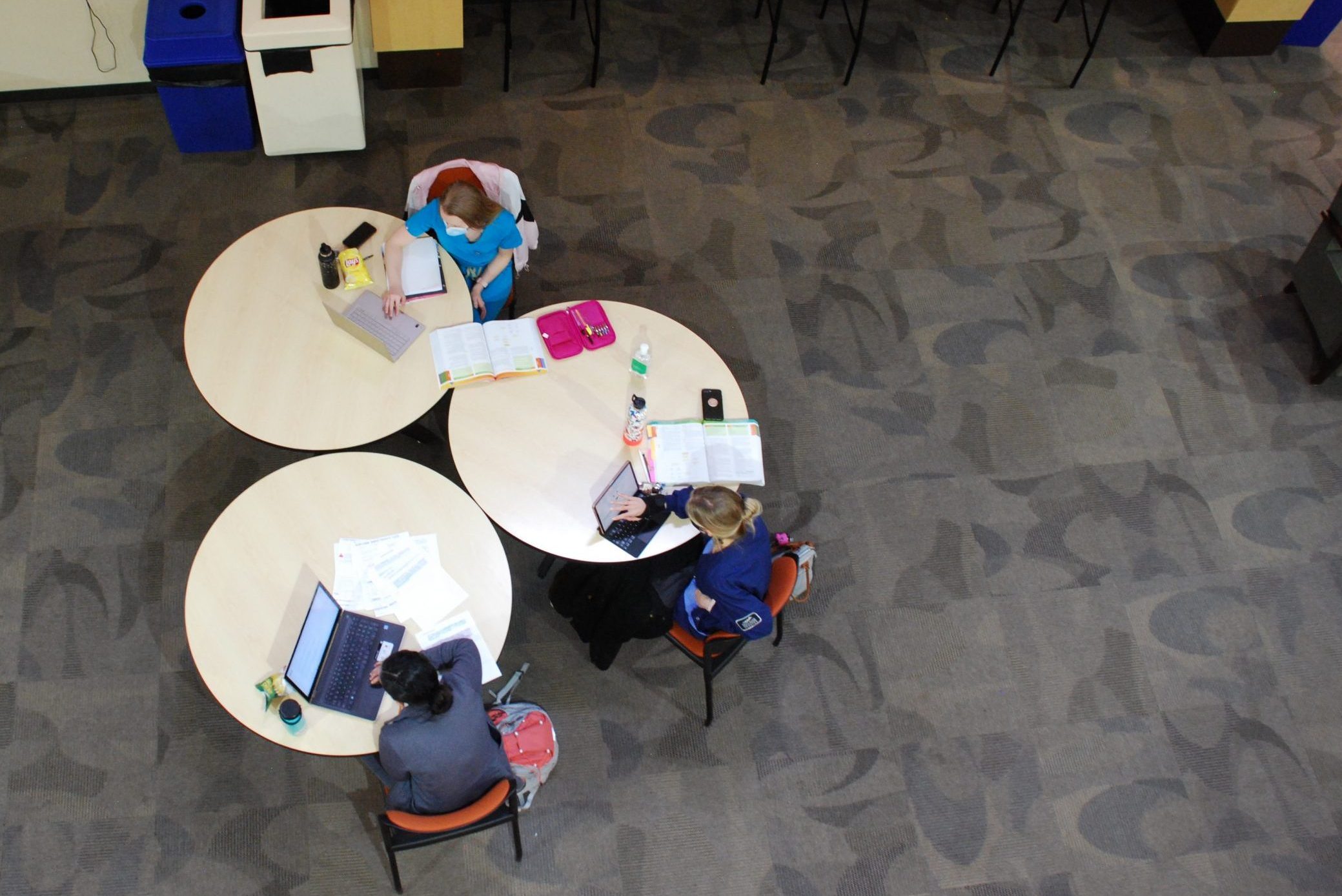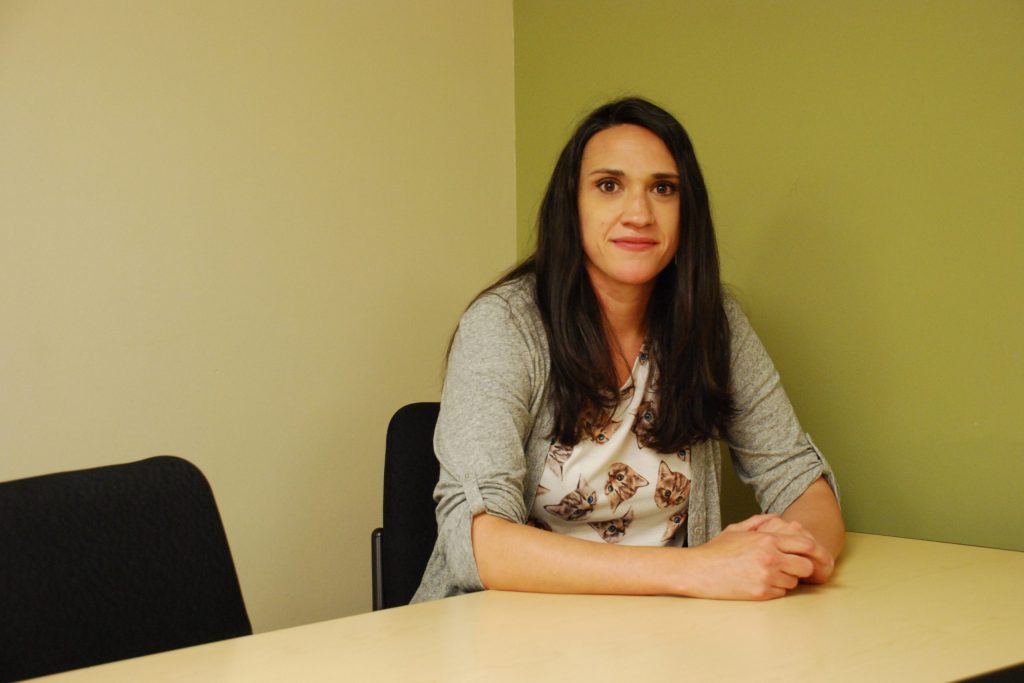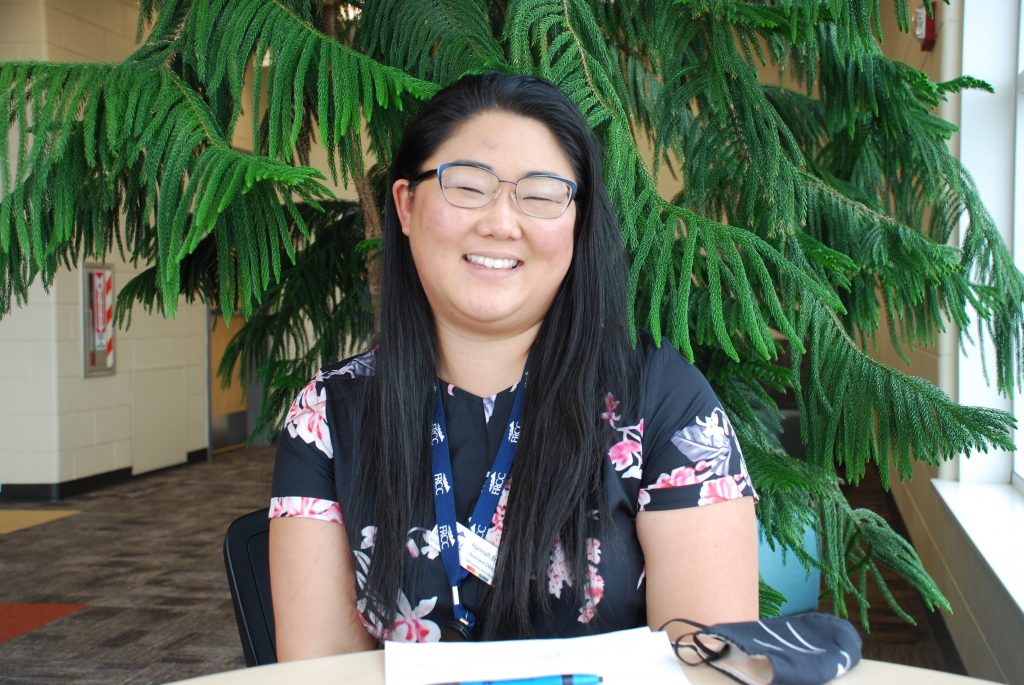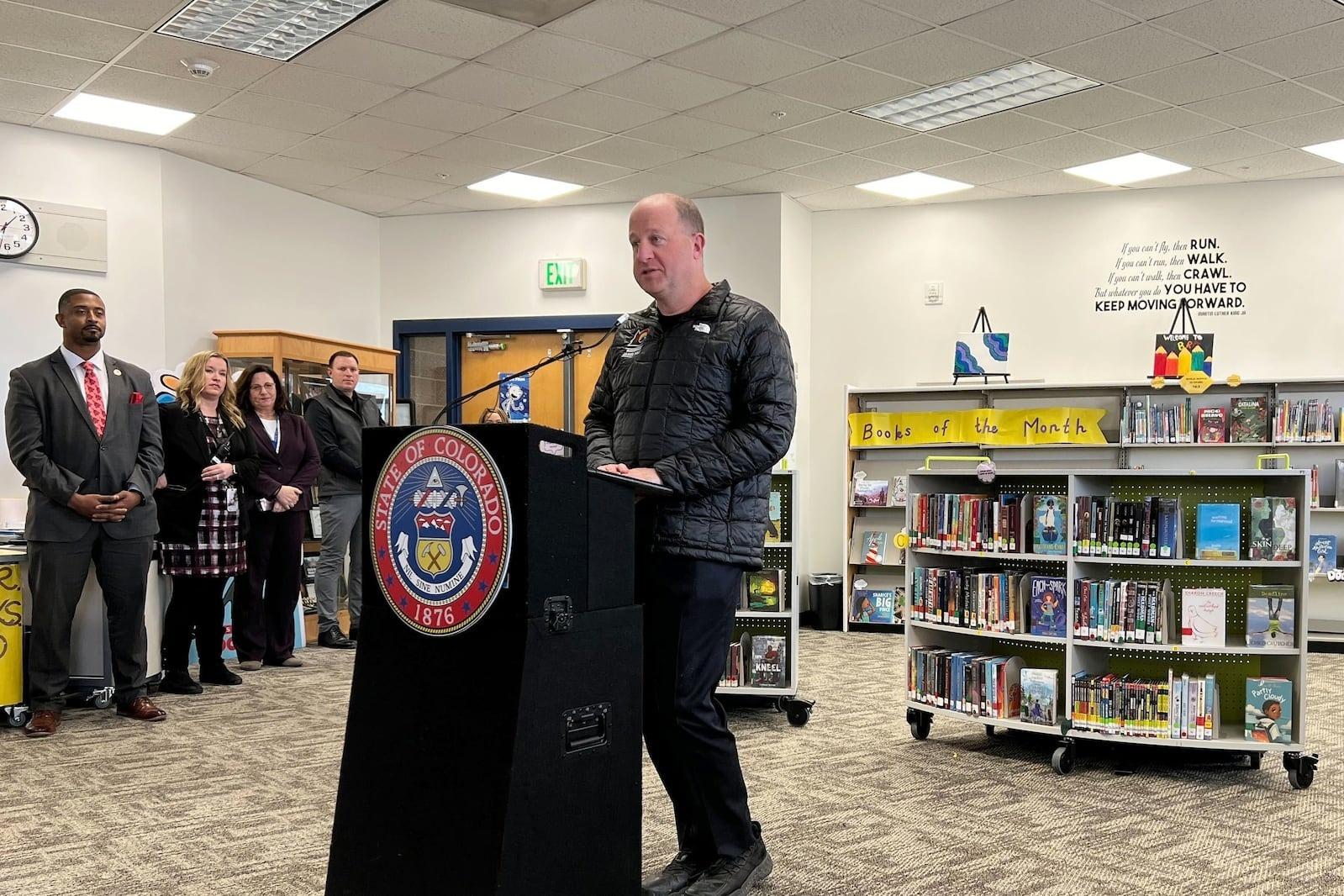
Twenty years after obtaining her high school diploma, Katie Rodriguez is about to graduate from community college with an associate degree in early childhood education.
After working as a veterinary technician for more than a decade and starting a family, she decided to pursue a career in teaching. When her employer told her she needed to get a teaching degree, she enrolled at Front Range Community College.
She said she chose a community college over a four-year institution because it saved her money.
“Financial aid is a lot more helpful when they're like ‘Oh, look at her advanced age, let's give this woman some money for school and help her out,’” Rodriguez said.
Rodriguez is part of a very important demographic for community colleges. After the 2008 recession, the number of students enrolling in two-year institutions surged. Most of that increase came from older adults looking to begin a second career following the financial crisis.

Colorado Community College System chancellor Joe Garcia thought that same surge would happen at the height of the pandemic, when unemployment reached historic highs.
“Clearly that didn't happen,” he said. “And I think the reason was the uncertainty around COVID, whether it was going to be short-lived and whether we'd be back to normal in a couple of months and people would get their jobs back. So I think there was a certain amount of fear and uncertainty that we haven't seen in previous economic downturns."
Enrollment across the community college system is down about 10 percent this year. Garcia is hopeful it will return to normal, but he fears high school graduates may have lost interest in education during the pandemic.
“We hear from our friends in the K-12 world that high school engagement, especially for juniors and seniors, was down, that students weren't participating regularly. They weren't getting good grades, they weren't attending classes. And so we think they're going to be a lot of students who just aren't going to be showing up,” Garcia said.
Community colleges are doing a lot to tempt students back to college. They’re not raising tuition, they’re expanding scholarships, they’re starting apprenticeship programs. They’re also putting more money into marketing, specifically towards adults.
Hannah Brown is the assistant director of admissions and outreach at Front Range. She says recruiting high school students is relatively straightforward, because they’re already on a path to college. Reaching those who are already in the workforce is a more difficult task.
“I know that is a large population of opportunity youth, which are folks that have been out of high school for a little bit but don't necessarily have a degree and are in the workforce, and are still considered young people,” Brown said. “We'd definitely like to be able to do more with that with them.”

Front Range President Andy Dorsey said they hope to attract students like Rodriguez by touting their affordability. According to the Colorado Department of Higher Education, in-state community college students pay an average of about $3,800 a year. Students at the state’s flagship system, the University of Colorado, pay more than twice that amount.
“If they're right on the cusp of being able to afford a four-year education, they can start here,” Dorsey said. “They can save $10, $12, $15,000 before they go onto a four year school. And most of the students who start here, come out with very little debt.”
That’s just one selling point Dorsey hopes will entice students back to Front Range, which also suffered an enrollment decrease during the pandemic. Thanks to the state’s renewed effort to recruit adults, he anticipates an eventual return to normal levels.
“We're very mindful that this pandemic has created, I think, another group of non traditional students who are assessing their career options and they want to do something different. So we're absolutely focused on not only reaching out to those students, but creating new programs and new opportunities that can serve those students,” he said.
The state is hoping for results sooner rather than later. With Colorado lagging behind its goal to have 66 percent of Coloradans attain a postsecondary degree by 2025, the state needs community colleges, its most affordable higher education institutions, to be fundamental in aiding that effort.









